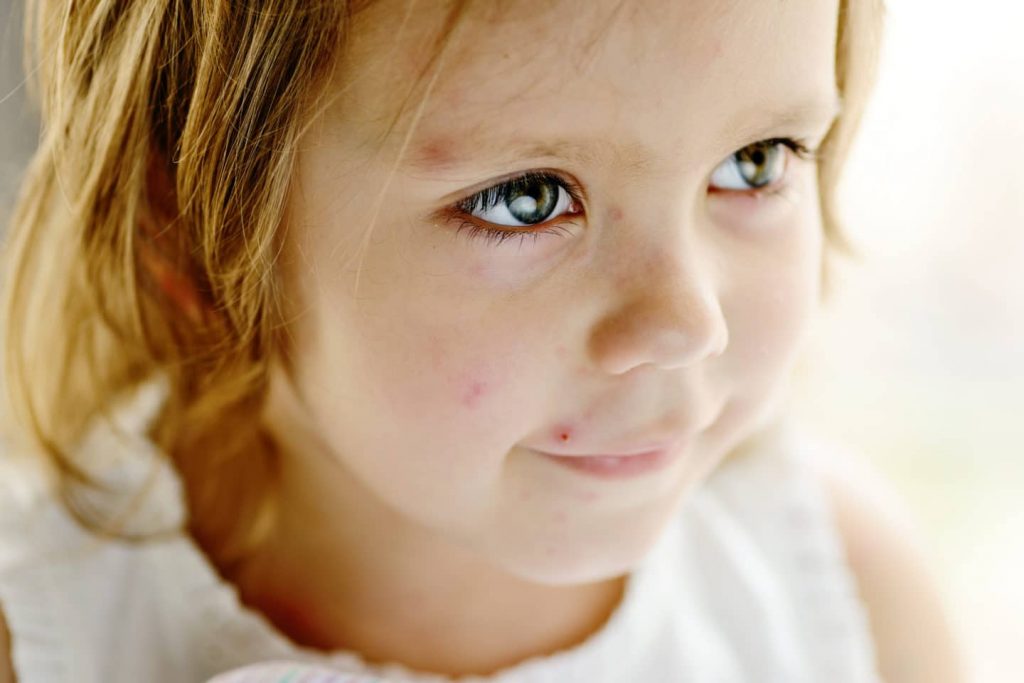What is Impetigo?
Impetigo is a contagious skin infection that usually affects children between 2 and 5 years old, but it can also affect older children. It can develop if bacteria get into healthy skin or into minor cuts, scrapes, or any other small openings caused by insect bites. The infection usually occurs in warm, humid conditions.
Impetigo is usually caused by a bacterium called “Staphylococcus aureus (” a type of “staph”). Less commonly, it is caused by “Streptococcus group A”, or “strep,” or by both “staph” and “strep”.
What are the symptoms of Impetigo?
When infected, red bumps appear on usually on the face, arms, or legs. These bumps eventually form blisters that then burst and scab over with a yellow, gold, or brown crust. In some cases, the blisters become painful sores that slowly heal. Fever does not usually occur. If there is fever, severe pain, worsening redness and swelling, that means there is a more serious type of infection going on.
If you have impetigo, your doctor can usually diagnose the condition just by looking at the affected skin. In some cases, your doctor will take samples of pus from one of the blisters to confirm the presence of bacteria, but that is usually not necessary.
How do you treat Impetigo?
Depending on how severe and extensive your infection is, your doctor may recommend a topical cream or ointment or oral antibiotics. If you have a larger infection, if the infection appears to be deep, or if the areas are hard to reach, you may need oral antibiotics. Be sure to finish the entire course of treatment.
Impetigo is spread from person to person through direct skin contact. To keep from getting impetigo, wash your hands with soap and water right after you touch anyone who has the infection. An alcohol-based hand rub will work too.
To prevent the spread of impetigo and of other infections, take the following precautions:
- Wash your hands with soap and water often (no matter whom you touch) and use alcohol hand rubs. Do not share personal items, such as towels, clothes, or hair combs.
- Wash towels and bed linens in hot water and dry them on high heat.
- If you have impetigo, try covering the parts of your skin that are infected. Otherwise, if you scratch the affected skin and then touch yourself elsewhere, you can spread the infection to other parts of your body.
- Always use disposable tissue paper to blow your nose. Wash your hands after handling tissues that could be carrying germs.
- When you sneeze, sneeze into the crook of your arm or into your shoulder, not into your hands. Otherwise the bacteria from your nose and mouth will end up on your hands and anything you touch.


































